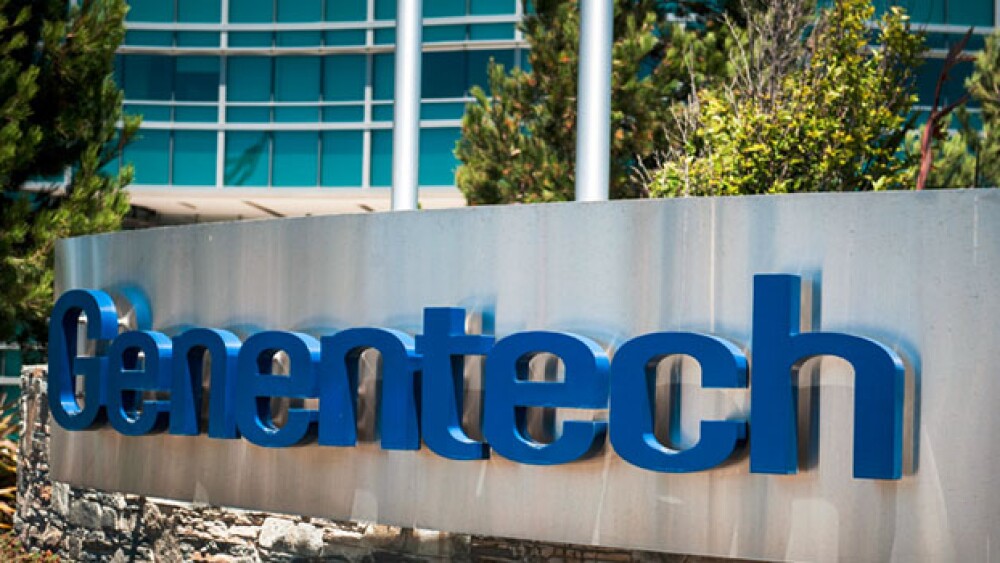Genentech, a Roche company, released data from a long-term clinical trial of Ocrevus in multiple sclerosis. Meanwhile, Novartis isn’t standing still on MS. Earlier this week the company announced that both the FDA and EMA had accepted its NDA and MAA, respectively, for siponimod.
Genentech, a Roche company, released data from a long-term clinical trial of Ocrevus (ocrelizumab) in multiple sclerosis. Results were presented at the 34th Congress of the European Committee for the Treatment and Research in Multiple Sclerosis (ECTRIMS) held in Berlin, Germany.
The research is five-year data from the Phase III open-label extension trials of OPERA I, OPERA II and ORATORIO. The data indicate that the efficacy of Ocrevus continues on key measures of disease activity as well as indicating that patients treated earlier with the drug had “superior disability progression outcomes” compared to patients who switched from interferon beta-1a or primary progressive MS (PPMS) patients who switched from placebo.
“From the moment of diagnosis, reducing disease progression is an important goal for people with MS,” said Stephen Hauser, chair of the Scientific Steering Committee of the OPERA studies, professor of neurology at the University of California, San Francisco (UCSF), and director of the UCSF Weill Institute for Neurosciences. “The new data presented at ECTRIMS demonstrate that Ocrevus’ efficacy continued over five years in relapsing and primary progressive MS, and notably, include the largest body of evidence for any medicine to significantly slow disability progression in primary progressive MS.”
He added, “The data also suggest that Ocrevus rapidly suppressed relapse and MRI disease activity in people with relapsing MS who switched from interferon beta-1a, and additionally, that earlier treatment with Ocrevus reduced disability progression and brain atrophy.”
Ocrevus is currently approved in 68 countries across North America, South America, the Middle East, Eastern Europe, in addition to Australia, Switzerland and the European Union. It is being reviewed in more than 20 more countries worldwide.
Meanwhile, Roche’s Swiss competitor Novartis isn’t standing still on MS. Earlier this week the company announced that both the U.S. Food and Drug Administration (FDA) and European Medicines Agency (EMA) had accepted its New Drug Application (NDA) and Marketing Authorization Application (MAA), respectively, for siponimod (BAF312) to treat secondary progressive multiple sclerosis (SPMS) in adults.
Novartis used a review voucher to expedite siponimod’s review in the U.S. Regulatory response in the U.S. is expected in March 2019, and in Europe in late 2019.
Of people with relapsing-remitting MS (RRMS), which is the most common form at the time of diagnosis, more than 80 percent go on to develop SPMS, with or without relapses. SPMS leads to progressive, irreversible disability, including the need for enhanced walking aids and wheelchairs, bladder dysfunction and cognitive decline. After the first RRMS course, the number of patients transitioning to SPMS gradually increase, with about 25 percent progressing by 10 years after onset, 50 percent by 20 years and more than 75 percent by 30 years.
“Siponimod is the first investigational medicine to show a significant delay in disability progression in typical SPMS patients,” said Paul Hudson, Novartis Pharmaceuticals’ chief executive officer, in a statement. “With siponimod, we underpin our strong commitment to the MS community by reimagining care for people whose lives have been considerably disrupted by this devastating illness. We are closely working with the FDA and EMA to ensure siponimod is available for patients as soon as possible.”





